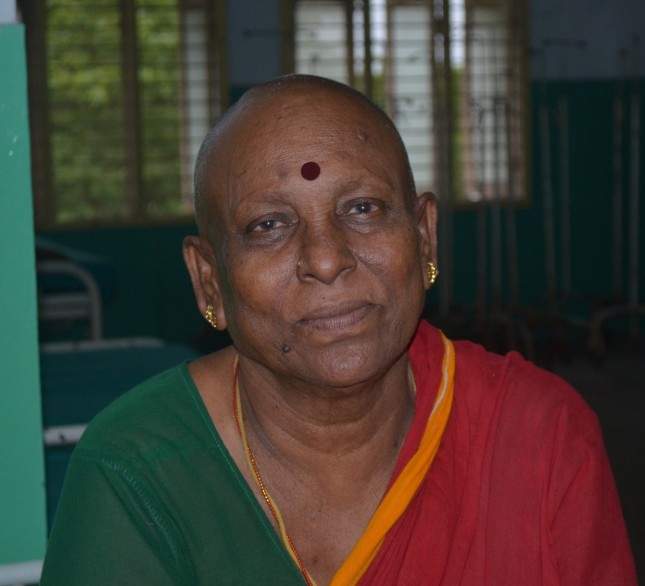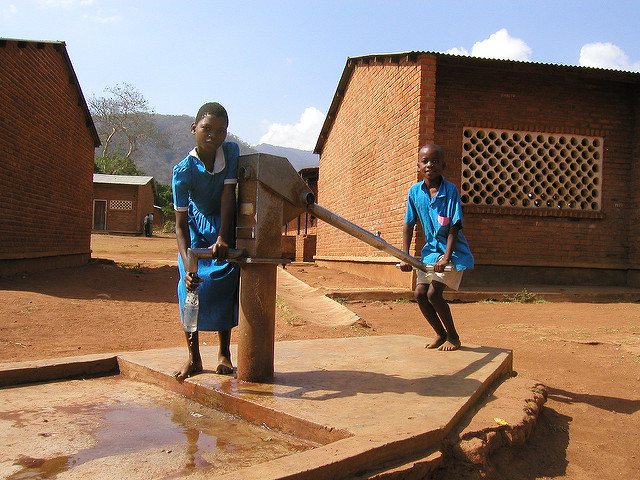-
Everybody Counts: Maternal Mortality
› It’s 2018, so why are women still dying in childbirth? This episode of Everybody Counts, hosted by Jennifer D. Sciubba, a professor of political demography at Rhodes College, explores why maternal mortality is a global issue, what policy solutions can keep mothers healthy, and why valuing women is at the heart of the issue.
It’s 2018, so why are women still dying in childbirth? This episode of Everybody Counts, hosted by Jennifer D. Sciubba, a professor of political demography at Rhodes College, explores why maternal mortality is a global issue, what policy solutions can keep mothers healthy, and why valuing women is at the heart of the issue. -
Parfait Eloundou-Enyegue: Moving from Laundry Lists to Bottom Lines
› “A lot of the advocacy of family planning has been built around establishing a long list of the many ways in which family planning can be relevant” to other development goals, says Parfait Eloundou-Enyegue of Cornell University in our latest Friday Podcast. While comprehensive accounts of the ways family planning access benefits communities, these “laundry lists” are not “clear, synthetic, or integrative,” he says.
“A lot of the advocacy of family planning has been built around establishing a long list of the many ways in which family planning can be relevant” to other development goals, says Parfait Eloundou-Enyegue of Cornell University in our latest Friday Podcast. While comprehensive accounts of the ways family planning access benefits communities, these “laundry lists” are not “clear, synthetic, or integrative,” he says. -
A More Prosperous World: Investing in Family Planning for Sustainable Economic Growth
›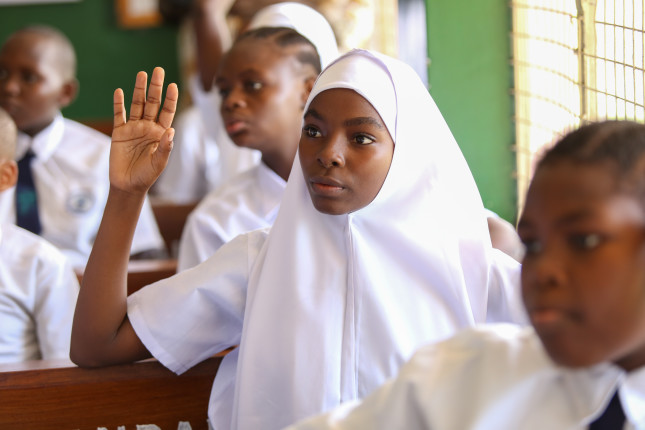
“There is a close relationship between fertility rates and health on one hand, and economic growth on the other,” said Peter McPherson, President of the Association of Public Land-Grant Universities and former USAID Administrator, at the final event in a three-part series on the role of population and family planning in supporting economic growth, health, and education.
-
Jocelyn Ulrich: Enhancing Public Health to Unleash the Economic Power of Women
› Healthy Women, Healthy Economies is a global initiative that aims to unleash the “economic power of women by bringing governments, private sector, and other civil sector actors together to improve women’s health,” says Jocelyn Ulrich of EMD Serono (known as Merck KGaA, Darmstadt, Germany outside of the US and Canada) in our Friday Podcast. Providing for women’s health needs enables them to “join, thrive, and rise” in the economy, “bringing prosperity home to their families and communities.”
Healthy Women, Healthy Economies is a global initiative that aims to unleash the “economic power of women by bringing governments, private sector, and other civil sector actors together to improve women’s health,” says Jocelyn Ulrich of EMD Serono (known as Merck KGaA, Darmstadt, Germany outside of the US and Canada) in our Friday Podcast. Providing for women’s health needs enables them to “join, thrive, and rise” in the economy, “bringing prosperity home to their families and communities.” -
From Day One: Malawi President Joyce Banda on Girls Ages 0-10
›
“Over 130 million girls around the world are not in school through no fault of their own,” said Her Excellency Joyce Banda, former president of the Republic of Malawi, at the launch of her new book, From Day One: Why Supporting Girls Aged O to 10 Is Critical to Change Africa’s Path, at the Center for Global Development.
-
Franklin Moore: Fostering Local Innovation Through Community Organization
› Africare’s work has been built on a “strong belief that community mobilization and local capacity building and innovation are the cornerstones of successful development, and that, for us, includes resilience,” says Franklin Moore, Chief of Programs for Africare, in a podcast from a recent Wilson Center event. “Community engagement, capacity building, and looking at locally driven behavior and social change is what empowers communities.”
Africare’s work has been built on a “strong belief that community mobilization and local capacity building and innovation are the cornerstones of successful development, and that, for us, includes resilience,” says Franklin Moore, Chief of Programs for Africare, in a podcast from a recent Wilson Center event. “Community engagement, capacity building, and looking at locally driven behavior and social change is what empowers communities.” -
Women and Cancer in India
›
As India faces an emerging cancer crisis, how do South Indian women conceptualize what causes reproductive cancers—and how to cure them? New qualitative research from Cecilia Van Hollen, a medical anthropologist and Wilson Center Public Policy Fellow, illuminates the complex perceptions and personal experiences of women in Tamil Nadu, the first state to integrate cancer screening into its primary health care system.
-
Family Planning Can Mean Big Progress for the Sustainable Development Goals—And Here’s How
›
As the UN High-Level Forum on Sustainable Development continues this week, member states and civil society are taking a hard look at countries’ progress toward securing safe drinking water, sanitation, and adequate housing. Achieving these and the other Sustainable Development Goals (SDGs) requires recognizing the synergies among them—including the role that reproductive health and family planning can play. You may ask, “Why does family planning matter for the SDGs not related to health?” The answer is that it is one of the most cost-effective investments for achieving the SDGs. Increasing access to family planning provides sweeping social, economic, and environmental benefits for every dollar spent.
Showing posts from category global health.


 It’s 2018, so why are women still dying in childbirth? This episode of
It’s 2018, so why are women still dying in childbirth? This episode of  “A lot of the advocacy of family planning has been built around establishing a long list of the many ways in which family planning can be relevant” to other development goals, says Parfait Eloundou-Enyegue of Cornell University in our latest Friday Podcast. While comprehensive accounts of the ways family planning access benefits communities, these “laundry lists” are not “clear, synthetic, or integrative,” he says.
“A lot of the advocacy of family planning has been built around establishing a long list of the many ways in which family planning can be relevant” to other development goals, says Parfait Eloundou-Enyegue of Cornell University in our latest Friday Podcast. While comprehensive accounts of the ways family planning access benefits communities, these “laundry lists” are not “clear, synthetic, or integrative,” he says.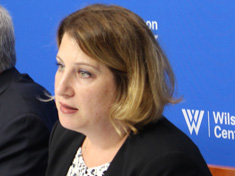 Healthy Women, Healthy Economies is a global initiative that aims to unleash the “economic power of women by bringing governments, private sector, and other civil sector actors together to improve women’s health,” says Jocelyn Ulrich of
Healthy Women, Healthy Economies is a global initiative that aims to unleash the “economic power of women by bringing governments, private sector, and other civil sector actors together to improve women’s health,” says Jocelyn Ulrich of 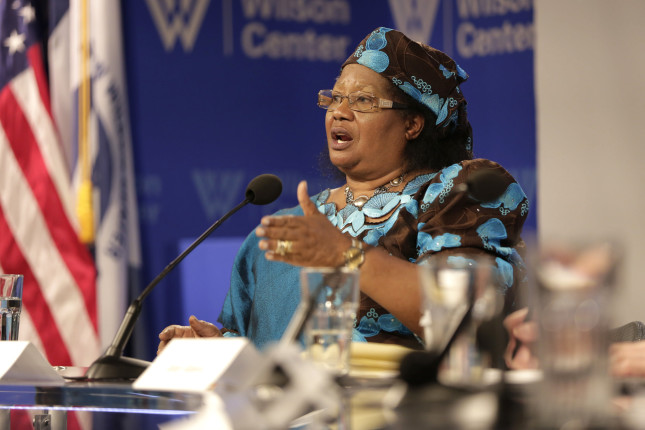
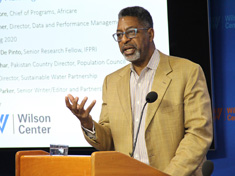 Africare’s work has been built on a “strong belief that community mobilization and local capacity building and innovation are the cornerstones of successful development, and that, for us, includes resilience,” says
Africare’s work has been built on a “strong belief that community mobilization and local capacity building and innovation are the cornerstones of successful development, and that, for us, includes resilience,” says 